10 Secret Signs Your Neighbor Is A Fed
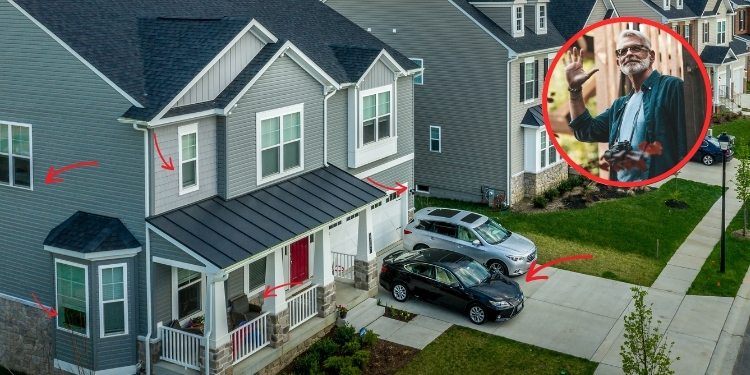
We live in a world where trust is shrinking and surveillance is expanding. Cameras dot every intersection, phones track more than just our steps, and privacy? It’s slipping fast. If you’re the kind of person who believes in self-reliance, liberty, and minding your own business, then you’ve probably felt it—that suspicion in your gut. What if the guy next door isn’t just a friendly neighbor? What if he’s watching for a different reason?
The days of trench coats and telephoto lenses are gone. These days, surveillance wears khakis, waves at your kids, and offers to help you move a couch. Not every neighbor is a fed, of course. But some are. And if that sounds like tinfoil hat talk to you, remember—paranoia only looks silly until you’re proven right.
Below are signs you should pay attention to. One or two on their own might be a coincidence. But stack a few together, and it’s time to stop talking and start watching.
They’re Always Asking, Never Telling
They want to know what you do for work, where you’re from, what you’re building in the garage, how much water you’ve got stored. But ask them what they do, and it’s vague. “Consulting,” “remote work,” or just a change of subject.
That’s not neighborly—that’s information gathering.
Ask yourself: do they seem to be building a mental file on you? Are they repeating your answers back to you weeks later? Real conversations are two-way streets. If they’re always prying and never revealing, be cautious.

Throughout my prepper journey, I’ve always been fascinated by human psychology.
Let’s face it: when SHTF, most folks will crumble under scarcity. They’ll lack food, water, power, and most critically, KNOWLEDGE.
For preppers, though, the real threat isn’t shortages—it’s other people!
Think about it. If you’re stocked with food, water, and essentials, your biggest risk is becoming a target for those who aren’t.
Back to psychology: at The Home Defense Academy, I learned how to spot neighbors who could turn into trouble.
Wondering what red flags to watch for? It comes down to THESE 3 specific questions they’ll ask during casual chats. Check them out, along with other tips to handle problematic neighbors like a survival expert.
Their Story Has Gaps or Too Much Detail
A real backstory has a few rough edges. Dates don’t always line up, memories get fuzzy. But someone who’s trying to keep a cover story straight? Either they stumble over questions or they go too far—over explaining things no one asked about.
You might hear things like, “Yeah, I was stationed overseas in 2008—or was it 2007? No, definitely 2008 because that’s when my brother graduated.” Or on the flip side, a long, overly specific timeline that sounds like it was rehearsed in front of a mirror.
If their life story sounds like it was written by a committee, it probably was.
They Move In Fast and Get Friendly Even Faster
New neighbors usually lay low for a bit. But these folks? They’re at your door with beer on day one. They want to help with your fence. They join every community group. They know everyone’s name within a week.
There’s nothing wrong with friendliness. But when someone tries to build trust at lightning speed, it’s often because they need access.
Keep in mind, building rapport is standard procedure in infiltration training. So if their charm seems over-the-top, it might not be genuine.
Their Routine Doesn’t Match Their Claims
They say they work from home, but you never see a laptop. They say they travel for work, but their car hasn’t moved in days. They say they live alone, but you spot unfamiliar faces coming and going at night.
Pay attention to:
- House lights at odd hours
- Vehicles arriving or departing when they’re supposedly “at work”
- Shifts in daily habits that don’t make sense
It’s not about being nosy. It’s about watching patterns. And when those patterns don’t add up, something’s off.
You Always Feel Watched
You go outside to check the mail, and suddenly they’re out there, “trimming the hedges.” You load gear into your truck, and their blinds shift ever so slightly. You catch them on their porch every time you open the garage.
Once or twice is a coincidence. But every time? That’s surveillance.
This kind of passive observation is a dead giveaway. They don’t engage. They just track.
Strange Cars Come and Go
It’s not unusual to have visitors, but when the vehicles don’t match the neighborhood and the people keep to themselves, it’s worth noticing.
Watch for:
- Plain white vans parked for short periods
- Unmarked black SUVs that stop by regularly
- Rental sedans with out-of-state plates
- Visitors who never engage with anyone else
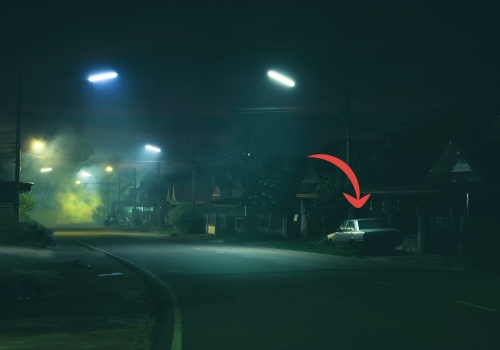
Sometimes the cars change, but the faces don’t. Or maybe the same person shows up in different vehicles throughout the week. These are coordination visits, and they rarely have innocent explanations.
You don’t need to panic—but take note. Regular visits from unusual vehicles might mean someone’s not who they say they are.
They Steer the Conversation Toward Sensitive Topics
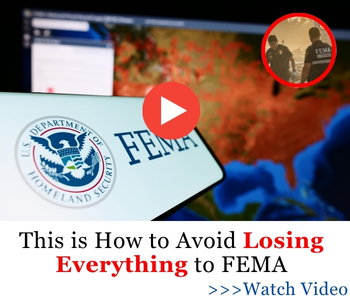 They casually mention prepping, government overreach, or “what you’d do if things went south.”
They casually mention prepping, government overreach, or “what you’d do if things went south.”
Then they go quiet and let you talk.
It might sound like they’re testing the waters, trying to connect. But more often, they’re baiting you to reveal your mindset.
Don’t fall for it.
It’s better to stay vague, redirect the conversation, or just smile and say, “I try not to worry about that stuff.”
Their Home Feels Like a Set Piece
Their house is spotless. Their yard is perfectly maintained. No clutter, no signs of hobbies, no kids’ bikes, no mismatched furniture on the porch.
It feels… too clean.
Most people live with a bit of chaos. Life leaves traces. If a house looks like it was furnished by a government catalog, it may be exactly that.
Even their pets—if they have any—might seem strangely quiet or trained. Every piece of their environment is controlled.
They Avoid Certain Triggers
They change the subject when someone talks about the Constitution, homeschooling, or gun rights. They stay silent during political conversations. They never commit to an opinion.
This isn’t about being polite—it’s about staying non-controversial. Staying “neutral” is easier when you’re recording or reporting.
Notice how they react to key words. Even a flinch can say a lot.
They Don’t Really Live There
Here’s the big one that nobody talks about: they’re never home. Or, they’re always gone on weekends, the power is off but the blinds are open, the house is lit up like someone’s there but you never see movement.
Some surveillance homes are staged. They’re not really lived in. They exist to monitor a location or a person, and the “resident” is just part of the act.
Look for signs of life. If they’re missing, ask yourself why. After all, your neighborhood is a community.
For example, the Amish hardcore prioritize their community and trust, treating them as the ultimate defense against threats, including snoops or infiltrators. Their tight-knit crews thrive on mutual accountability—trust ain’t given, it’s earned through consistent actions, grinding out their traditional lifestyle, and sticking to the code.
And here’s the key takeaway: outsiders looking to join get put through a low-key but intense vetting process: no formal tests, just a long grind of watching how you act, what you say, and if you walk the walk over months or years.
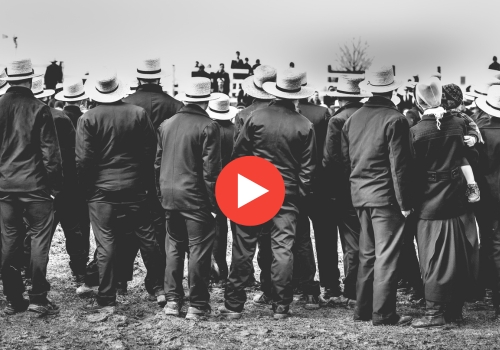
This keeps their off-grid, self-reliant setup secure from feds or phonies. For a prepper eyeballing their neighbor as a possible undercover cop, take a page from the Amish: stay frosty, watch for red flags in behavior.
➡️ Click here and discover more tips in The Amish Ways Book!
What Should You Do?
If you even have the slightest suspicion… you’re not crazy. You’re cautious. And there’s a huge difference. Ask yourself: What if I’m not wrong?
The reality is, if your neighbor just happens to check a few of the red flags I mentioned earlier, and you choose to stay vigilant as if he really is a fed, you lose nothing.
But if you ignore the signs and let your guard down, you risk everything. That’s why the smartest move is to do what any true prepper would do: discretion, discretion, discretion.
Here are some basic rules every serious prepper should live by:
✅ Never share vital information — Don’t mention personal details, don’t tell people what you own, unless you fully trust them, and don’t reveal your backup plans.
✅ Don’t show what you have — Everything related to prepping should stay in the shadows. Hide your supplies. Remember, FEMA would love to get their hands on your stash. Guns? Don’t even get me started.
I recommend using hidden spaces, like this underground bunker you can build yourself for under $400 — it not only keeps your goods safe, but could save your life in an earthquake, hurricane, or even an EMP attack. You can also use false walls, secret floors, or furniture with hidden compartments.
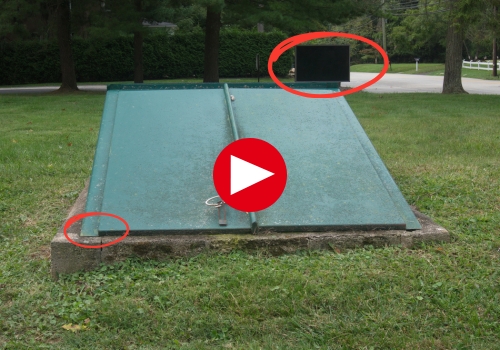
✅ Don’t ask too many questions — If your neighbor is actually a fed, you can bet he’s trained to sniff out suspicion. You need to be smarter than him even while you’re secretly gathering info. Stay subtle.
✅ Act natural — Seriously, don’t let him feel that you’re onto him. Move and talk naturally, but always be extremely discreet when it comes to anything that might raise questions: stockpiling, moving gear, or any prepping activities.
For example, throwing up a tall privacy fence around your compound might feel like a solid play for security. But here’s the hard truth—this move could blow up in your face and you can learn here how.
✅ Don’t do anything stupid — This might be the best piece of advice of all. Stay informed about your state laws and always look for smart workarounds for “problematic” prepping activities that might catch FEMA’s or ATF’s eye. Be smart. Stay one step ahead.
Final Thoughts
We’re not saying every new face on the block is an agent. But in a time when trust is a currency and information is power, you’re smart to play it close to the vest. Smile. Wave. Be civil. But don’t give away your plans, your stockpile, or your mindset.
The best defense is silence. The best shield is preparation. Let them wonder what you know. Let them wonder what you’ve seen. But never let them know you’ve been watching, too.
Stay quiet. Stay alert. And above all—stay unrecorded.
While watching your shady neighbors, don’t forget your own preparedness—this ingenious DIY water generator pulls clean water from thin air, even during blackouts or grid failures. It’s a game-changer for self-reliance.
You may also like:
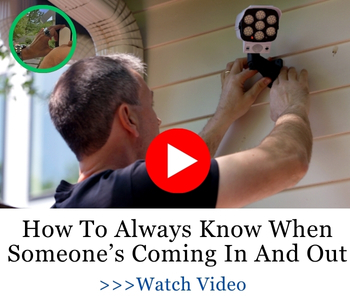
This Is What Your Neighbor Might Already Know About You
The First States That Will Go Down in a Crisis. Do You Live in the Red Zone? (Video)
What Is Your Neighbor Hiding
This Is Why You Should Watch Your Neighbors Carefully
If Your Neighbor Does This, Avoid Him at All Costs
Read the full article here









